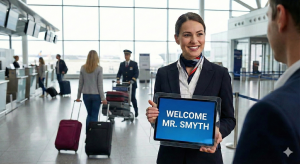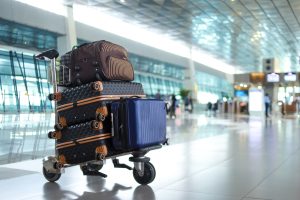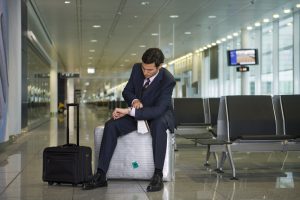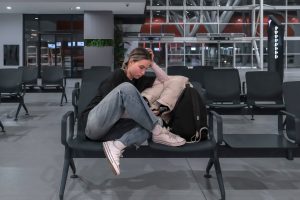Traveling through airports with children or elderly parents presents unique challenges that demand careful planning and strategic support. Between managing mobility limitations, keeping children entertained during long waits, navigating security procedures with special needs, and handling unpredictable delays, family travel can quickly become overwhelming. This comprehensive guide provides essential tips for traveling airport experiences smoother for families and seniors, revealing professional solutions that transform potentially stressful journeys into comfortable, efficient experiences. Whether you’re traveling with toddlers, teenagers, aging parents, or mobility-impaired relatives, these strategies ensure everyone arrives at their destination safely, comfortably, and with minimal stress.
- Plan and Book Special Assistance in Advance
Advance planning represents the foundation of successful airport travel with vulnerable family members. Availability of assistance services varies significantly, and requesting these services at the airport often results in disappointment during busy periods.
Wheelchair services for elderly passengers or those with mobility limitations are essential but can involve lengthy waits, with passengers sitting at gates or designated areas until staff becomes available.
Early boarding for families with young children and passengers requiring extra time is helpful but doesn’t address the extensive queues before reaching the gate. Families still navigate crowded check-in counters, security screening with children and numerous bags, and confusing terminal layouts before accessing boarding benefits.
Booking dedicated meet-and-greet services ensures experienced staff meet your family at the terminal entrance, immediately taking control of luggage, navigating check-in procedures, and providing wheelchairs or mobility aids without any waiting period. This personalized attention proves invaluable when traveling with elderly parents who tire easily or children who become restless in crowded airport environments.
These services should be booked at least 48 to 72 hours before departure, though many providers accommodate last-minute requests. When booking, specify all family members’ needs including ages of children, mobility limitations of elderly relatives, medication requirements, and any special equipment like strollers or portable oxygen. This information allows providers to assign appropriate staff and prepare necessary resources, ensuring seamless service from arrival through boarding.
- Arrive at the Airport Extra Early
Standard arrival recommendations of two hours for domestic flights and three hours for international departures become inadequate when traveling with children or elderly parents. These vulnerable travelers require additional time for frequent bathroom breaks, slower walking pace, feeding schedules, and unexpected complications that inevitably arise.
Families with young children should arrive at least three hours before domestic flights and four hours before international departures. Toddlers need diaper changes, feeding, and calming during emotional moments. Older children require bathroom visits, snack breaks, and activity changes to prevent boredom-driven misbehavior. Security screening takes significantly longer when managing multiple children, car seats, strollers, and numerous bags through X-ray machines.
Elderly travelers face different challenges that demand extra time. Walking speeds decrease substantially with age, particularly for those with arthritis, respiratory conditions, or cardiovascular limitations. Stairs and long terminal corridors exhaust seniors quickly, requiring frequent rest breaks. Cognitive changes associated with aging mean elderly parents may need more time processing information, following directions, and adapting to airport environment stress.
However, arriving extremely early creates its own problems. Children become restless spending hours in terminals before flights. Elderly parents exhaust themselves sitting in uncomfortable gate areas. Airport restaurants and shops close early morning or late evening, limiting food options and activity possibilities for extended waits.
Dedicated airport assistance helps families manage time effectively by expediting key processes and ensuring smoother transitions through check-in, security, and boarding. This support allows travelers to arrive with comfortable time margins while avoiding both the stress of rushing and the exhaustion of excessive waiting periods.
- Use Family or Priority Lanes When Available
Many airports designate special lanes for families with young children or passengers requiring additional assistance. These lanes theoretically provide faster processing and more space for managing strollers, car seats, and multiple family members simultaneously.
In practice, family lanes have significant limitations. Not all airports offer these facilities, and even where they exist, availability fluctuates based on staffing levels and passenger volume. During peak travel periods, family lanes become as congested as standard queues, filled with numerous families simultaneously seeking expedited processing. The lanes also typically end at security screening, providing no benefits for check-in, baggage drop, immigration, or terminal navigation.
Priority lanes for passengers with disabilities or elderly travelers face similar challenges. While intended to provide faster service, these lanes often lack adequate staffing during busy periods. Elderly passengers using these lanes still wait in queues, simply shorter ones than general passengers face. The physical setup of priority lanes varies dramatically between airports, with some offering genuine accessibility features while others simply designate existing queues with different signage.
Family and priority lanes also fail to address the most time-consuming airport procedures. Security screening, even through family lanes, requires removing shoes, unpacking electronics and liquids, and managing children through body scanners or metal detectors. International immigration queues exist regardless of family status, with elderly travelers standing for extended periods in poorly climate-controlled areas. Customs procedures upon arrival treat all passengers identically, regardless of age or family composition.
Comprehensive assistance services provide dedicated access to expedited channels that minimize waiting times throughout the airport journey. Experienced staff manage all documentation, handle luggage, and coordinate with airport authorities while your family remains comfortable. Children avoid crowded, stressful queues, and elderly parents never stand in exhausting lines, dramatically improving the travel experience for vulnerable family members.
- Pack Smart: Essentials, Medications, and Snacks
Strategic packing represents critical preparation when traveling with children or elderly parents. The carry-on bags must balance airline restrictions with family needs, containing everything required for comfortable airport transit and potential flight delays while remaining manageable through security screening.
For children, essential items include multiple diaper changes for infants, complete outfit changes for toddlers prone to spills, and age-appropriate snacks that sustain energy without causing sugar-induced hyperactivity. Baby formula, breast milk, and toddler foods exceed standard liquid restrictions, requiring separate declaration at security checkpoints. Entertainment items like tablets, coloring books, and small toys prevent boredom during extended waits, but batteries must be charged and devices loaded with content before arriving at airports where WiFi may be unreliable.
Elderly parents require careful medication management. All prescriptions should remain in original pharmacy containers with clear labels matching identification documents, preventing security complications and ensuring proper dosing during travel. Backup supplies for chronic conditions prove essential, as checked baggage occasionally goes missing. Medical equipment like portable oxygen concentrators, CPAP machines, or blood glucose monitors require advance notification and approved documentation.
Snack selection requires balancing nutrition, shelf stability, and security regulations. Dense foods like protein bars, nuts, and dried fruit provide sustained energy without refrigeration. However, certain items trigger additional security screening, particularly spreads, gels, and anything resembling paste. Fresh fruit often faces agricultural restrictions at international destinations. Purchasing snacks after security screening eliminates these concerns but costs significantly more than items brought from home.
The physical challenge of managing multiple bags while supervising children or assisting elderly parents through crowded terminals creates substantial stress. Professional porter services eliminate this burden entirely, handling all luggage from vehicle to check-in counter and collecting baggage upon arrival. Staff experienced in family travel ensure nothing is forgotten, medications remain accessible throughout the journey, and carry-on items move efficiently through security screening while you focus exclusively on your children’s behavior and elderly parents’ comfort and safety needs.
- Bring Entertainment for Kids and Comfort Items for Seniors
Keeping children occupied during airport waits and flights prevents behavioral problems that stress entire families and disturb fellow passengers. Entertainment strategies must account for varying attention spans, different age groups traveling together, and the reality that children exhaust activities faster in stressful airport environments than at home.
Digital entertainment provides powerful distraction. Tablets loaded with movies, educational games, and favorite shows occupy children for extended periods. However, tablet use requires charged batteries, and airport charging stations are frequently occupied during peak periods. Backup portable chargers become essential, though these must comply with airline lithium battery restrictions. Headphones prevent disturbing other passengers, but child-sized models with volume limiters protect developing hearing.
Non-digital entertainment provides important alternatives when devices lose appeal or batteries die. Coloring books, sticker collections, small action figures, and card games engage children without electronic dependence. New items, purchased specifically for the trip and revealed strategically during the journey, generate excitement that sustains interest longer than familiar toys. However, managing numerous entertainment items while navigating airports with luggage and supervising multiple children becomes physically overwhelming for most parents.
Elderly parents require different comfort considerations. Familiar items from home like favorite blankets, pillows, or photographs provide emotional reassurance in stressful travel situations. Cognitive decline associated with aging makes unfamiliar environments particularly disorienting, and personal items offer grounding touchstones. Medical comfort items like compression socks, pain relief medications, and mobility aids must remain accessible throughout the journey.
Airport lounges provide optimal environments for managing entertainment and comfort needs. These quiet spaces offer comfortable seating, complimentary food and beverages, clean bathrooms, and sometimes dedicated family areas with children’s activities. Day passes, when available, cost fifty to seventy-five dollars per person.
Professional airport assistance includes VIP lounge access as standard service, providing comfortable environments where children can play safely while elderly parents rest in quiet areas. Experienced staff monitor flight information and boarding times, allowing families to relax completely rather than constantly checking departure boards and gate changes. This combination of comfort and professional monitoring eliminates the stress of entertaining children and ensuring elderly comfort while simultaneously tracking flight logistics.




